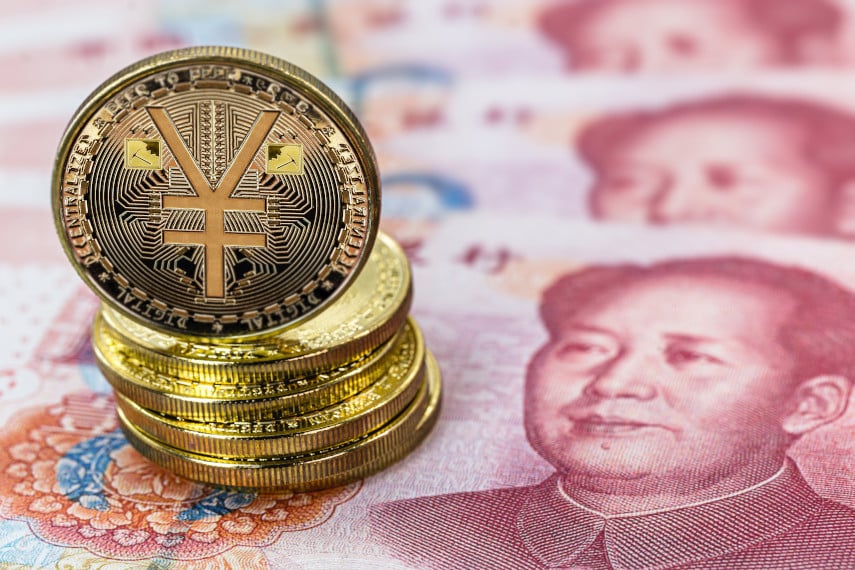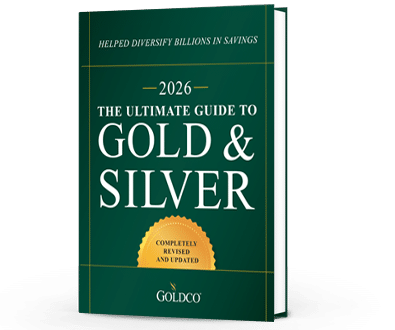3 Things That You Should Know About Inflation
Only a few short years ago, the United States experienced the highest inflation rates in over 40 years as inflation rates peaked at over 9% That was a wake up call for many Americans who had been...
Economy

Since the end of World War II, the US dollar has functioned as the world’s reserve currency. For the first quarter century that was as part of the Bretton Woods system, in which the dollar could be redeemed by foreign governments for gold. After President Nixon closed the gold window in August 1971, the dollar has been completely severed from gold yet has continued to serve as the world’s reserve currency. Could that all be about to change?
No currency has lasted permanently as the world’s reserve currency. The temptation on the part of the currency issuer to take advantage of its status as the issuer of the world’s reserve currency to inflate the currency is too severe. In the United States, this began already in the 1950s and 1960s, as the Federal Reserve ran loose monetary policy to the advantage of the US government and US exporters, and to the detriment of foreign governments and foreign exporters.
As foreign governments got wise to what the US was doing, they began to convert more and more of their dollar holdings into gold. The hemorrhaging of US gold reserves prompted President Nixon finally to close the gold window, leaving the US dollar as a freely floating and exchanged currency on world markets.
Over the past 50 years, we have seen the results of the freely floating fiat currency financial system, with debt levels throughout the world skyrocketing while the purchasing power of money has declined precipitously. Against gold, for instance, the US dollar has lost 98% of its purchasing power since 1971.
How much longer will the US dollar remain the world’s reserve currency? The position the US has enjoyed has allowed the US government to issue tens of trillions of dollars in debt, secure in the knowledge that there will always be a ready market for that debt. If and when the dollar is finally dethroned, the advantage the government gains from its status as the issuer of the world’s reserve currency will be lost, meaning that debt issuance won’t be as easy or as cheap. That could lead to a major financial reckoning.
Talk of the dollar’s demise has been ongoing for years, but no currency has yet stepped up to take the dollar’s place. There are other reserve currencies, such as the euro, the Japanese yen, or the British pound. Yet none of these have anywhere near the acceptance that the US dollar has. To many in the US, the dollar’s supremacy on the world stage will seemingly last forever. But that kind of complacency could end up being costly.
The Chinese yuan is the odds-on favorite to overtake the dollar, yet it is still a ways away from doing so, or so we think. But recent developments have American policymakers worried that China may be closer than we think to dethroning the dollar.
The yuan has made great strides in two areas that could be crucial to international monetary acceptance in the future. First, China has officially announced a central bank digital currency (CBDC), the so-called digital yuan. In doing so, it has become the first major nation to take this step. This has Western central banks, and the Federal Reserve in particular, flailing to figure out how to react. With the future of money being increasingly digital, a central bank digital currency could give China a leg up over the US.
The second, and arguably more important, development has been the potential for a gold-backed yuan. There has been much talk of China eventually backing the yuan with gold, akin to how the dollar was backed by gold in the past. A gold-backed yuan, especially if it is convertible, could take market share from the fiat US dollar, which seems to be inflating its way into oblivion.
The Chinese central bank has consistently announced small monthly purchases of gold over the past few years, around 10 tonnes a month. But just recently the Chinese central bank allowed for 150 tonnes of new gold imports. That’s a significant increase, and has led to discussion of whether Beijing is attempting to loosen restrictions on gold imports in order to increase domestic gold supply to allow for a gold-backed yuan.
A dollar collapse would be bad news for most investors. With both bonds and stocks denominated in dollars, a collapse of the dollar as it loses its world reserve status could lead to those assets losing significant value and purchasing power. American investors haven’t seen a world in which the United States wasn’t top dog in nearly a century, and the psychological blow would be massive.
But some investors could still escape from such a scenario in decent shape. If a gold-backed yuan ends up becoming the world’s reserve currency, and gold ends up reestablishing itself as the anchor of the world monetary system, those investors holding gold could see their assets increase significantly in value as the rest of the world scrambles to increase their gold holdings. After all, in a gold-backed monetary system, those with gold are the ones who have real money.
How likely the yuan is to upend the dollar is anyone’s guess, but there’s one thing that’s certain: US politicians and government officials are underestimating the threat from the yuan. They still operate as though the US is the global hegemon that just won World War II, and they fail to realize that China is quickly catching up to the US and could soon surpass it. That failure to appreciate the threat from the yuan could end up being the dollar’s undoing, as politicians in Washington continue to spend trillions of dollars they don’t have to try to stimulate the US economy and win votes.
One way to help protect yourself against the dollar’s replacement is by investing in gold. If a gold-backed yuan ends up becoming the world’s reserve currency, owning gold could be a good way to protect yourself and your assets against the dollar’s demise. China’s citizens are doing their part to build up their assets by buying gold, but American investors seem by and large to ignore that and remain content to hold stocks and dollar-denominated bonds. They could end up ruing that decision in the future.
Buying gold doesn’t have to be complicated either. With a gold IRA, you can even roll over or transfer assets from existing retirement accounts such as a 401(k), IRA, or TSP into an investment in gold. Your gold IRA will then offer you the same tax advantages as your existing retirement accounts, but will hold physical gold coins or bars that you can take possession of when you decide to take a distribution.
Don’t let complacency about the dollar’s status lull you into a sense of false security. The financial world order is changing, and it could only be a matter of time before the dollar is knocked off its pedestal. Talk to the experts at Goldco today to find out how gold can help you protect your wealth when that happens.

